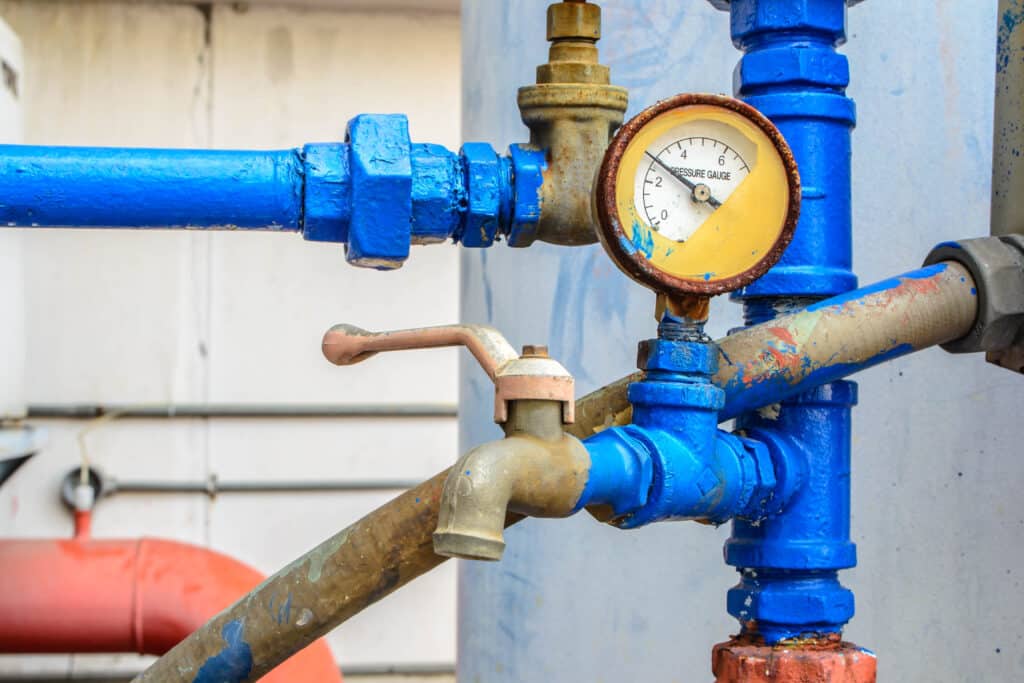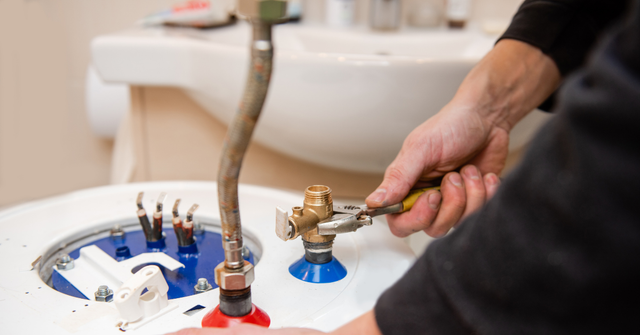Just how do you feel about 9 Reasons for Low Water Pressure in Your House?

Low water pressure in your house can be a discouraging issue, affecting every little thing from bathing to washing recipes. If you're experiencing weak water circulation, there are several possible causes and remedies to check out. In this overview, we'll talk about typical reasons for low tide pressure and practical steps to address the issue effectively.
Introduction to Low Water Stress
Low tide stress occurs when the flow of water from your faucets, showers, and other fixtures is weaker than common. This can make everyday jobs much more tough and much less efficient. Understanding the reasons for low water pressure is vital to finding the appropriate remedy.
Common Root Causes Of Low Tide Stress
Faulty Pressure Regulatory Authorities
Pressure regulators are responsible for keeping consistent water pressure in your home. If they malfunction, it can result in low water stress or irregular circulation throughout your house.
Community Supply Of Water Issues
Sometimes, the trouble lies outside your home. Community water supply concerns, such as main line leaks or maintenance work, can temporarily lower water stress in your location.
Pipe Obstructions
In time, pipelines can become blocked with natural resource, sediment, or debris, restricting the circulation of water. This is a typical problem in older homes with galvanized steel pipes.
Rust
Rust within pipelines can lead to leaks and decreased water pressure. Corrosion build-up can constrict water circulation, particularly in aging plumbing systems.
How to Identify Low Tide Stress
Evaluating Pipelines
Inspect visible pipelines for indicators of leaks, corrosion, or obstructions. Take notice of any kind of unusual audios, such as knocking or rattling pipes, which can show issues within the plumbing system.
Consulting with a Plumber
If you're incapable to determine the source of low tide stress, take into consideration hiring a specialist plumber to perform a complete inspection. They can determine underlying concerns and recommend suitable solutions.
Inspecting Taps and Fixtures
Begin by examining the water stress at different faucets and fixtures throughout your home. If the issue is separated to specific areas, it may indicate local problems.
DIY Solutions to Take Care Of Low Water Stress
Flushing Water Heater
Sediment accumulation in the water heater can restrict circulation and decrease efficiency. Purging the tank regularly aids eliminate debris and maintain optimum efficiency.
Checking Stress Regulator
Make sure that the stress regulatory authority is operating correctly. Changing or replacing the regulator can help recover appropriate water stress throughout your home.
Cleansing Aerators and Showerheads
Mineral deposits can build up in aerators and showerheads, reducing water circulation. Get rid of and cleanse these components consistently to improve water stress.
Clearing Up Clogs in Water Lines
For small clogs, try making use of a plumbing serpent or chemical drainpipe cleaner to clear blockages in pipes. Beware when utilizing chemicals and follow security guidelines.
When to Call a Specialist Plumber
If do it yourself initiatives fail to settle the problem or if you think significant plumbing issues, it's ideal to seek help from an accredited plumber. They have the know-how and tools to deal with complex concerns securely and successfully.
Preventive Measures to Preserve Water Stress
Setting Up a Stress Booster
Take into consideration setting up a pressure booster pump to boost water pressure in locations with continually reduced circulation. This can be especially helpful for multi-story homes or homes with high-demand fixtures.
Surveillance Water Use
Bear in mind water use routines and avoid overtaxing the plumbing system. Straightforward changes, such as astonishing showers and washing tons, can aid maintain sufficient water pressure.
Normal Maintenance
Set up regular maintenance for your plumbing system to prevent problems such as corrosion, leaks, and obstructions. Dealing with minor issues early can assist stay clear of even more considerable fixings later on.
Conclusion
Dealing with low tide stress can be frustrating, however determining the underlying causes and carrying out appropriate services can bring back optimum circulation throughout your home. Whether it's cleansing aerators, evaluating pipelines, or consulting with a plumber, taking positive steps can make certain a constant supply of water for your everyday requirements.
How to Fix Low Water Pressure In Your Home
Municipal Water Supply Issues
Scheduled maintenance, high demand, and water main breaks are all potential causes for low water pressure within a city or county’s water lines. While there’s not much you can do to personally fix a problem with your city or county’s water supply system, you can play a big role in documenting the issue and alerting those who can.
How to fix it:
Ask your neighbors if they are experiencing any issues with low water pressure. If multiple homes are affected, it’s likely related to the city’s water line. Contact the local Water Authority to see if there is any maintenance taking place that might be affecting your supply. Also let them know of your specific issues. If other homeowners report the same issues, they’ll know that there could be a larger issue to look into. Faulty Fixtures
A damaged or clogged shower head, faucet or appliance is the first thing we’d suggest checking, especially if low water pressure appears to be isolated to a specific area of your home.
How to fix it:
First, turn off the main water supply to your home. Check the affected appliances for build-up or debris. In the case of a faucet, you can simply unscrew the aerator at the tip of the faucet. Showerheads should be fully detached from the water pipe. While the appliances are detached, you may want to check the water supply to determine if the fixtures were in fact the issue. To clean, soak the showerhead or aerator in vinegar and brush off any visible debris. Reattach the fixtures and check the water pressure again. If it is still low, there is likely a deeper issue at hand, which can be determined by a professional plumber. Pipe Obstructions
Mineral deposits, rust or other debris within water pipes can lead to blockages or corrosion over time.
How to fix it:
When you think of a clog, you probably think of a drain clog. While there are many DIY solutions to clearing a drain, clogs in a water pipe will almost always require the help of a professional plumber. A plumber will be able to locate the affected pipe and clean out any debris or mineral deposit buildup. In severe cases, the pipe may need to be replaced. Your plumber might also recommend a water softening system to remove the minerals from your home’s water supply that can contribute to pipe blockages over time.
Plumbing Leak
Undetected water line leaks can divert water away from your residential pipes, reducing the water pressure in your fixtures.
How to fix it:
Check your water meter by turning off all water sources and monitoring the meter for any movement, which could be a clear indicator of a potential leak. Check all visible pipes for signs of leaking, including water stains, active dripping or damp spots around the pipe. Inspect fixtures, including faucets and showerheads, for any drips. Test the pressure but recording the pressure with the main water valve shut off. Leave off for a few hours and test again. A significant drop in pressure is a clear sign of a leak. https://kiddcoplumbing.com/plumbing-blog/how-to-fix-low-water-pressure/

As an enthusiastic reader about 10 Reasons for Low Water Pressure in Your House, I was thinking sharing that chunk was really helpful. Sharing is nice. You never know, you may very well be helping someone out. Bless you for being here. Please come visit our site back soon.
Visit Link